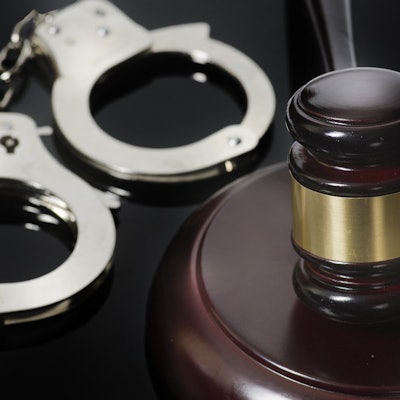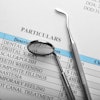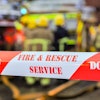
Recently, a Washington state dentist elected not to follow the standard of care with endodontic cold vitality testing for patients. He allegedly replaced a refrigerant approved by the U.S. Food and Drug Administration (FDA) for pulp testing with an off-label refrigerant product commonly used to dust off computer keyboards. Unfortunately, that product has also been cited in the medical literature as an intoxicant that is associated with fatal cardiac arrhythmias and kidney disease.
The Washington doctor was ordered to pay a $3,000 fine and $10,000 in reimbursement expenses to the Washington Dental Quality Assurance Commission. A public search of his dental license now says his credential is "active with restrictions."
 Dr. Michael W. Davis.
Dr. Michael W. Davis.We have all been exposed to purchasing offers that seem too good to be true. During the pandemic, we have seen marketing from fly-by-night suppliers offering marked-down personal protective equipment (PPE). What may be advertised as valid N95 PPE masks may, in fact, be counterfeit and fail to meet accepted standards.
In a quest for the ultimate bargain, the health and safety of patients and healthcare workers are placed at risk. Discount deals for dental supplies and equipment may be marketplace swindles. A product at rock-bottom prices should raise reasonable skepticism.
All too often, apparent cost savings may be a trick, resulting in a world of hurt for all involved. The utilization of do-it-yourself (DIY), unregulated, and undocumented clinical methods and materials opens practitioners up to potential liabilities. A doctor's liability carrier may be in no position to defend a resulting claim.
The FDA has warned about the hazards of buying dental products outside established distribution chains. If a doctor elects to engage in off-label uses for dental devices or materials, that action should be well-supported in the peer-reviewed dental literature and within the standard of care.
A clinician knowingly utilizing black, gray, or DIY dental supplies operates outside the standard of care. Any resulting harm to patients may be evidence of negligence and subject to potential legal claims or punitive actions under administrative law, such as a state dental regulatory board.
Black and gray dental market products
Black market dental materials are generally counterfeited to misrepresent themselves as valid products of known and respected manufacturers. Gray market products are usually materials initially destined for a foreign market, often with differing standards, but unlawfully repackaged for the U.S. dental market.
Purchasers of these dubious products often have no idea of the deception. Other times, clinic managers or owners may seek to lower business overhead costs through the procurement of suspicious dental supplies. In turn, doctors and patients may have no idea of the sham or potential threats to clinical outcomes.
One large dental malpractice carrier, Dentist's Advantage, expressly warns doctors about the use of non-FDA-approved materials and devices for cost containment. The FDA has rules and regulations regarding the import, use, and sale of dental materials and devices, and breaking those rules can be serious and expensive, the insurer noted.
"If there are any suits or complaints concerning or as a result of using [nonapproved] materials/devices, the defense of those claims would be very difficult, if not impossible to defend," Dentist's Advantage wrote. "The defendant in such cases would have to prove that the practice was within the standard of care!"
Off-label and DIY dental materials and supplies
The off-label use of pharmaceuticals is common in medicine. In dentistry, one well-known FDA off-label example is the use of silver diamine fluoride (SDF) for arresting or slowing the progression of dental caries; today, this is accepted within the standard of care. In fact, SDF is FDA-approved only as a class II device for reducing tooth sensitivity.
While off-label use of SDF is common, off-label or DIY dental materials and devices can also represent a field with highly troublesome outcomes for all involved. Like with counterfeit dental products, there can be no valid or feigned justifiable ignorance as a defense. There will be no citation within accepted peer-reviewed dental literature to support such off-label utilization.
One classic example is a doctor who deployed segments of metallic paper clips for use as permanent endodontic posts. The alloy composition and material properties were neither examined nor approved by the FDA. Qualities such as corrosion rate, metal fatigue under stress loading, and biocompatibility for potential allergic reactions were never tested. Apparently, this was simply a low-cost mechanism to generate an "add-on" fee with endodontic billings under Medicaid billings.
The case generated national attention for the doctor involved, as well for the dental Medicaid program and the dental profession. The doctor had an extensive history with various state dental boards and with alleged Medicaid fraud. He ultimately pleaded guilty to multiple crimes and was sentenced to a year in prison.
Is it worth the risk?
The immediate cost savings of counterfeit, gray market, and DIY dental materials may seem clever -- or even prudent -- to a patient with limited finances. But an opposing plaintiff's legal counsel or a regulatory agency will not present it that way.
Prosecutors often use a charging technique called "kitchen sinking." They may list an overwhelming array of alleged violations to motivate a defendant toward settlement.
Sometimes prosecutors list a specific charge as an attention-grabber. While this may or may not represent a more serious violation, it is designed to elicit an emotional reaction from adjudicators.
The use of paper clips as permanent endodontic posts or swapping an FDA-approved refrigerant for a keyboard dust-off product may be one of the less serious charges brought against a defendant. However, a prosecutor almost certainly anticipates how that will play in the media and before a potential judge or jury.
Is the reward in potential savings worth the potential legal and financial risks? What is saving one's stomach lining worth?
Dr. Mike W. Davis practices general dentistry in Santa Fe, NM. He assists as an expert witness in dental fraud and malpractice legal cases. He currently chairs the Santa Fe District Dental Society Peer Review Committee and serves as a state dental association member to its house of delegates. He extensively writes and lectures on related matters. He can be reached at [email protected] or SmilesofSantaFe.com.
The comments and observations expressed herein do not necessarily reflect the opinions of DrBicuspid.com, nor should they be construed as an endorsement or admonishment of any particular idea, vendor, or organization.



















